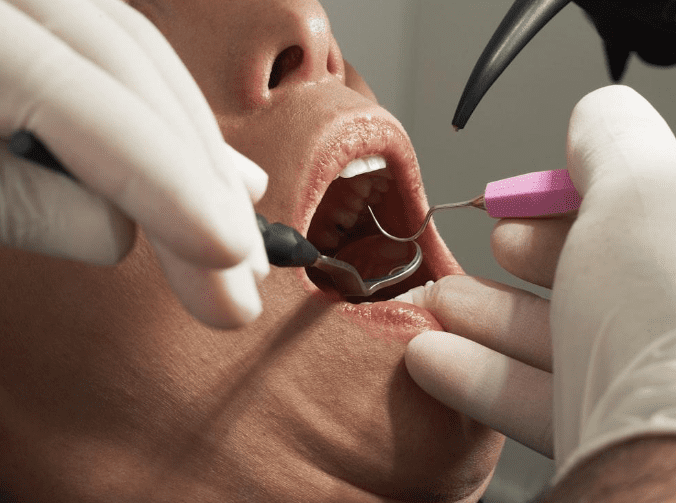Why Keeping Natural Teeth’s Important? What is Root Canal Therapy?
Chewi |Aug 06, 2024
What is root canal therapy? When to consider the treatment or complete tooth extraction? This article may give you some hints.
The significance of preserving natural teeth has gained substantial attention in the dental health industry, as highlighted in recent IDEX and AAE exhibitions.
However, it is still commonly believed that severely damaged teeth can be removed in any circumstance. This is contrary to the purpose of surgical endodontics or root canal treatment. So why keeping natural teeth is essential? What is root canal therapy? When to consider the treatment or complete tooth extraction? This article may give you some hints.

Why Keeping Natural Teeth is Important
Humans have only two sets of teeth in their lifetime: primary (baby) teeth and permanent (adult) teeth.
Primary teeth, totalling 20, emerge during childhood and eventually fall out as the jaw develops, making way for permanent teeth. The number of permanent teeth ranges from 20 to 32 due to the presence of wisdom teeth.
Unlike primary teeth, permanent teeth are irreplaceable; once a permanent tooth is extracted, it is lost forever.
Definition of Natural Teeth
Natural Teeth are defined as teeth that are free of active or chronic clinical decay, have at least 50% bony support, are functional in the arch, and have not been excessively weakened by multiple dental procedures.
Natural tooth concludes natural tooth crown, the neck of the tooth, and the tooth root. The periodontal tissues of natural teeth include the gingiva, cementum, periodontal ligament, and alveolar bone. The tooth is suspended in the alveolar socket by the periodontal ligament, with abundant blood supply and nerve innervation.
In contrast, the periodontal ligament and cementum of dental implants disappear with the removal of the tooth root, and the implant is fixed in the alveolar bone through osseointegration.
Why Keeping Natural Teeth Matters
Maintaining natural teeth is vital for several reasons.
- Natural teeth retain their original function. They are better at chewing and biting compared to artificial alternatives, which can sometimes cause discomfort or require adjustments.
- Keeping natural teeth also helps in maintaining proper alignment and spacing in the mouth, preventing potential issues with bite and jaw alignment.
- Natural teeth contribute significantly to one's appearance. They help maintain the natural contours of the face and provide a more aesthetically pleasing smile. The psychological benefits of retaining one's natural teeth should not be underestimated, as they can enhance self-esteem and confidence.
Damaged Teeth Preview – Root Canal Treatment or Extraction
Not all damaged teeth need to be extracted. Many can be preserved with appropriate dental treatments. Teeth that are cracked, chipped, or even infected can often be saved through procedures such as fillings, crowns, and endodontic treatment.
The decision to keep a damaged tooth depends on the extent of the damage and the overall health of the tooth. Here are some cases you may confront:
- Severe Tooth Decay and Non-Restorable Crown and Root Fragments
- Loose Teeth Caused by Periodontitis
- Impacted Teeth
- Retained Deciduous Teeth
- Supernumerary Teeth
- Misaligned Teeth Affecting Aesthetics and Function
- Teeth Requiring Extraction for Orthodontic Treatment
- Focal Teeth Causing Local or Systemic Diseases

Root Canal Therapy: A Key Method for Keeping Natural Teeth
A comprehensive root canal treatment is essential to ensure the healing of the affected tooth and to preserve its function in chewing and biting as much as possible.
What is Root Canal Therapy?
Root canal treatment is a procedure aimed at treating pulpitis or periapical periodontitis. The principle involves removing the infected material within the canal and then filling and sealing the canal to prevent periapical disease and promote the healing of any existing periapical lesions. The main steps include the following:
- Root Canal Preparation: Cleaning and shaping the root canal to remove infected tissue and prepare the space for filling.
- Root Canal Disinfection: Use antiseptic solutions to disinfect the canal and eliminate any remaining bacteria.
- Root Canal Filling: Filling the cleaned and disinfected canal with a biocompatible material to prevent reinfection.
- Crown Installation: Sealing the tooth with a crown to restore its function and protect it from further damage.
When Should Root Canal Therapy Be Considered?
- Pulpitis or Periapical Periodontitis, Pulp Necrosis, and Internal Resorption
These conditions typically require root canal treatment to remove the infected or necrotic pulp and prevent further complications.
- Tooth Fractures
If a tooth is fractured and the crack extends into the pulp chamber, leading to bacterial infection, root canal treatment is necessary.
- Severe Dental Caries
Severe caries that result in deep cavities reaching the pulp chamber and causing acute pulpitis should be treated with root canal therapy.
- Trauma-Induced Chronic Pulp Necrosis and Tooth Discoloration
Teeth that suffer trauma leading to chronic pulp necrosis and discoloration require root canal treatment.
- Mature Root Development in Transplanted or Replanted Teeth
Teeth that have undergone transplantation or replantation after the roots have fully developed should undergo root canal treatment.
- Certain Non-Carious Hard Tissue Diseases
Specific non-carious diseases affecting the hard tissues of the teeth may also necessitate root canal therapy.
Professional Dental Clinic Tools Manufacturer
From manual endodontics files to brushless motors, Perfect Dental has endeavored to improve surgical efficiency and accuracy. The professional provider also developed different sets of rotary files for different age groups.
For more information about endodontic treatment, you can visit Dental Perfect.






Comments
Sort by Newest | Popular